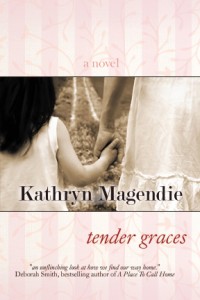 DO PUBLISHERS AND EDITORS READ BOOKS PUBLISHED BY OTHER PRESSES?
DO PUBLISHERS AND EDITORS READ BOOKS PUBLISHED BY OTHER PRESSES?
By Danielle Childers
Do publishers and editors read books they didn’t publish? You betcha! After all, we’re in this industry because we love good books. We’re such reading harlots. So I have no shame in presenting you with A Library Trollop’s Reading Recommendations!
I’m absolutely obsessed with retro fiction right now. The stunning covers. The world events. The vintage feel. When I pick up these books it’s like they whisper “I’ve lived. Read my wisdom. Experience my days.” And lately I’ve been reading new books about old summers.
I am super late to the party to read Beautiful Ruins by Jess Walter (Harper Perennial). But I was so excited that I purchased it in hardback. A luxury when you have to fund my reading habit. A story within a story. A movie within a novel. The azure coast of Itlay. The 1960s. An actress. An innkeeper. The filming of Cleopatra. “The only thing we have is the story we tell.”
you have to fund my reading habit. A story within a story. A movie within a novel. The azure coast of Itlay. The 1960s. An actress. An innkeeper. The filming of Cleopatra. “The only thing we have is the story we tell.”
Yes. It was beautiful. The writing. The imagery. The book. Yes, this is literary fiction of a sort, but as a former librarian, I am bone tired of the limited genres we have to describe books that are just…more. It’s vintage fiction. It’s retro-glam fiction. It’s geographic fiction. It’s gently epic and strangely modern. It’s amazing. Read it. But don’t read it as a guilty pleasure. Read it like the clever and cultured book that it is. Read it with a touch of awe and leave your critique behind. Just…enjoy it.
 Still on a high from Beautiful Ruins, I discovered (because books simply happen to me, for me.) Palisades Park by Alan Brennert (St. Martin’s Press). An Amusement Park. The 1930s. It’s like The Great Gatsby gone wild but brighter, and the grit is not hidden by the glitz. A book full of dreams from back when safety nets did not exist. Complete with frozen lemonades and the warmth of day that lingers in the asphalt. It’s something you only notice as a child, I think. But it’s magic. I read it on my Kindle with a fan blowing in my face and the sun shining. Yes. Read it. Now. Read it and reflect on the happiest summers that were magical because you lived and breathed thirty years of summer at an amusement park. You didn’t? Well sometimes I can’t separate books from my life.
Still on a high from Beautiful Ruins, I discovered (because books simply happen to me, for me.) Palisades Park by Alan Brennert (St. Martin’s Press). An Amusement Park. The 1930s. It’s like The Great Gatsby gone wild but brighter, and the grit is not hidden by the glitz. A book full of dreams from back when safety nets did not exist. Complete with frozen lemonades and the warmth of day that lingers in the asphalt. It’s something you only notice as a child, I think. But it’s magic. I read it on my Kindle with a fan blowing in my face and the sun shining. Yes. Read it. Now. Read it and reflect on the happiest summers that were magical because you lived and breathed thirty years of summer at an amusement park. You didn’t? Well sometimes I can’t separate books from my life.
Now, when I’m feeling really sentimental or have found a book I know I’m going to love so much, I always turn to some old, faithful book friends. I like to read them and introduce them to their new book friends. They won’t sit beside each other on my shelves unless they have the good luck to be written by authors who are alphabetically compatible, but when I glance over their spines, I’ll know they’re related.
So, it felt completely natural after these thoughtful, retro books, to pull out The Divine Secrets of the Ya Ya Sisterhood (Harper Perennial). Don’t judge  me. I feel very protective about this book, and I can’t explain it. I have a soft spot for Rebecca Wells because she can tell a great southern story spanning decades that will have you tasting pecans, dissolving in the summer heat with your friends, and sounding just like my Great Aunt Sherry. And it’s a great, mostly light hearted finale to this summer reading list.
me. I feel very protective about this book, and I can’t explain it. I have a soft spot for Rebecca Wells because she can tell a great southern story spanning decades that will have you tasting pecans, dissolving in the summer heat with your friends, and sounding just like my Great Aunt Sherry. And it’s a great, mostly light hearted finale to this summer reading list.
There you have it. Three absolutely perfect summer retro reads. Where the time is just as much of a character as the beaches as the roller coasters, as the people. Read Palisades Park and make lemonade. Beautiful Ruins should be read after watching Cleopatra. And the Ya-Ya’s? Just make a shoofly pie and drink the lemonade mentioned above. Sugar is sugar, and there’s just enough salt in the pie to enhance the tartness of the lemons.
Happy reading.
Bell Bridge Books presents these fabulous summer reading titles for only $1.99 on Amazon Kindle Today!
































